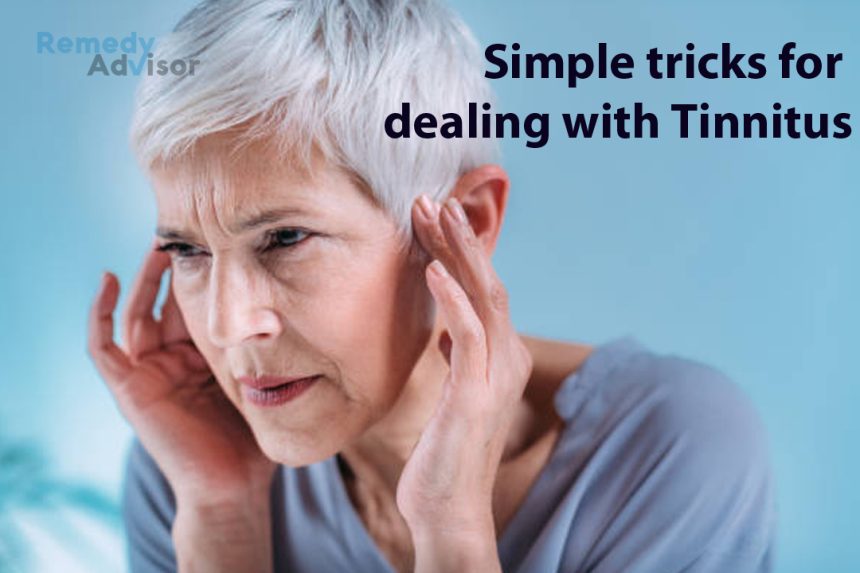Forty-four million Americans experience the hearing disorder tinnitus ringing in the ears on an occasional basis. Six million have chronic tinnitus. Tinnitus makes it hard to concentrate and can disrupt sleep. It can lead to depression or even suicide.
What causes the noise?
Tinnitus is not a normal consequence of aging. It’s usually caused by damage to the delicate “hair cells” lining the cochlea, a snail shell-shaped structure of the inner ear. The most common causes of hair cell damage are…
• Loud noise
A single loud noise (such as an explosion) can permanently damage the hair cells. More often, tinnitus stems from years of exposure to loud music, factory noise, etc.
Self-defense: Avoid loud music. Wear sound-absorbing earplugs whenever you spend time around a noisy machine. Inexpensive earplugs are available at hardware stores. If you anticipate repeated or prolonged exposure, custom-molded earplugs from an audiologist or sound-absorbing earmuffs offer better protection.
Ineffective: Stuffing your ears with cotton.
• Drugs
Transient tinnitus can be caused by many common drugs, including aspirin. Among the drugs that can cause permanent tinnitus are cisplatin and certain other chemotherapeutic agents and aminoglycoside antibiotics like streptomycin or gentamicin.
Self-defense: Anytime your doctor prescribes a drug, ask about the risks including the risk of tinnitus. Make sure the benefits outweigh the risk.
• Diseases
Tinnitus can be symptomatic of high blood pressure, arteriosclerosis, thyroid disorders, diabetes and certain other diseases. Tinnitus can also stem from head and neck injuries or from disorders of the middle or inner ear, including otosclerosis and Meniere’s disease. In rare instances, tinnitus is caused by a tumor of the auditory nerve.
Self-defense: If you suffer from any of these ailments, be sure to get adequate treatment. If you develop tinnitus, consult a doctor right away.
Sound masking
Most tinnitus sufferers crave silence. Ironically, the most effective treatment is often to “bathe” yourself in sound.
- Music
Try listening to different kinds of music. Notice if any helps mask the tinnitus or simply distracts your attention.
• White noise generators
These tabletop devices produce static noise or nature sounds (wind, surf, etc.). They’re available from electronics stores. Cost: $100 or less.
• Tinnitus maskers
These are white noise generators worn in or behind the ear, like a hearing aid. Certain maskers function as both a white noise generator and a hearing aid. Tinnitus maskers must be custom-fitted by an audiologist. Cost: $1,000 or more.
Auditory habituation
Auditory habituation combines use of a tinnitus masker or hearing aid with educational sessions that help the tinnitus sufferer change the way he/she perceives the sound.
This technique administered by an audiologist or physician can be quite effective. Eighty percent of those who try it get significant relief. However, the process can take two years.
Ultimately, the person with tinnitus comes to have a neutral rather than a negative perception of the sound. It’s like wearing pants you can feel the cloth against your skin if you think about it. Most of the time, however, you’re unaware of the sensation.
Mind/body techniques
• Cognitive-behavioral therapy
It helps tinnitus sufferers avoid the distorted thinking that aggravates their suffering.
• Self-hypnosis
Some unscrupulous hypnotherapists claim that tinnitus sufferers can be hypnotized to no longer hear the sound. Not true. But self-hypnosis can help them come to terms with their ailment.
• Biofeedback
This technique employs electronic gear that lets you monitor your brain waves and muscular contractions. Using this gear, tinnitus sufferers learn to control their own physiological reactions to the noise.
-
Guided imagery
Simply imagining yourself in a tranquil setting can help eliminate the frustration caused by tinnitus.
What to do: A few times a day, close your eyes and spend a few minutes picturing yourself aboard a sailboat. Imagine the smell of the sea, the feel of the sun on your skin, the sound of spray, etc. You’re headed for an imaginary island where your tinnitus magically disappears.
Tinnitus medication
Some patients get relief from alprazolam (Xanax). If congestion or allergies seem to be compounding the problem, an antihistamine may be helpful. The herb ginkgo biloba has been used with some success.
Caution: Ginkgo can interfere with blood clotting. If you take it on a regular basis, make sure your doctor checks your bleeding and clotting time at least twice a year.







